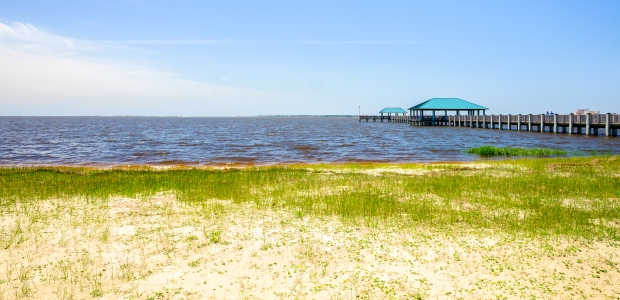
New Plans for Coastal Restoration in Louisiana and Texas
In a presentation to the Governor’s Advisory Commission on Coastal Protection, Restoration and Conservation, the America’s WETLAND Foundation (AWF) has outlined new solutions to help expand and expedite coastal restoration efforts, in concert with Louisiana’s Coastal Master Plan.
The America's WETLAND Foundation’s Adaptation for Gulf Coast Resiliency and Sustainability Program calls for stimulating more private sector cooperation, investment and participation in restoring coastal wetlands through greater incentives for land building, bio-mass development, scaled mitigation and voluntary environmental exchanges, along with the beneficial use of dredged materials linked to wetland carbon sequestration.
This effort will include demonstration projects and program recommendations to encourage innovation, enlist best practices, streamline governmental policies, address insurability issues and create new funding mechanisms that engage the private sector and the public in adaptation measures for a more resilient Gulf and national coast.
AWF’s Managing Director, Val Marmillion, stressed the importance of private sector investment, “Louisiana is poised to take advantage of private investment funds looking for projects that benefit the environment. Our coastal region is a prime target for these dollars,” he said. “Private investment can be focused on estuarine areas not necessarily included among the top priorities of the Master Plan, but certainly in keeping with it, and important to easing the inevitable transition. Where we can save and preserve vital wetlands, we will. We have to think outside the box and create credits or exchanges to encourage private landowners and economic interests to participate, or we won’t be able to achieve restoration on the scale that is needed.”
The Foundation points to recent progress where a private investment firm secured property for restoring the Chef Menteur Pass Land Bridge. "Institutional investors are putting money into wetland restoration through our latest fund, which is $181 million. The return on investment comes from projects that meet the highest standards for restoration and protection under the Clean Water Act, and we believe this model can be expanded to address other regional problems and priorities," says Adam Davis, a partner at Ecosystem Investment Partners.
“We can privatize some of our restoration needs which federal or state agencies may not have on the top of their lists, and we can do it oftentimes faster and cheaper with private resources,” said Marmillion.
Recent polling in Louisiana and Texas conducted by AWF shows a vast majority of voters agree it will take the cooperation of all sectors to fight the most significant challenges of coastal land loss – financing restoration, building with nature, protecting the Mississippi River Delta, developing ecologically sound energy and fostering community resiliency. Seventy-four percent of voters in Louisiana say coastal restoration is the issue of their lifetime and 94 percent want the energy sector to work in concert with state and local governments on coastal restoration solutions.
AWF senior advisor, Sidney Coffee, said, “Our poll findings and focus group discussions made it clear – the public is tired of the bickering and the partisanship. They want teamwork. They assume private economic interests and NGOs alike are doing good things for the coast, but they have no idea what they are. We decided it was time to talk about these partnerships in the hope of encouraging more of them.”
The America’s WETLAND Foundation began its “Game On!” campaign in January with a series of ads throughout Louisiana showcasing public/private coastal restoration partnerships and utilizing the now popular phrase coined by AWF, “the equivalent of a football field of land lost each hour” to dramatize the urgency for action. “We hope it will encourage other partnerships,” Coffee said. “The state has a good plan, but government will never be able to fund it in its entirety. We need everyone taking part.”
AWF is collaborating with a number of coastal partners across America, including the National Institute for Coastal and Harbor Infrastructure and the Union of Concerned Scientists, to build a coalition of diverse interests to help develop a comprehensive, national approach to coastal resiliency and sustainability. Most recently, AWF presented findings from a joint study with Entergy on resiliency and adaptation to a Wall Street summit that suggests state treasuries in the Gulf Coast will be hard pressed to keep up with infrastructure loss due to sea level rise and more severe, longer lasting, wider footprint storm events like Sandy and Isaac that key scientific reports predict will occur in the next 20 years.
R. King Milling, chair of the Governor’s Coastal Commission and board chairman of the AWF, said, “Hurricane Sandy was tragic but it did bring an important part of the country to the table. Resiliency and sustainability have taken on new meaning. It will take all of our coastal communities, the federal government, our state and local leaders, NGOs, research scientists, and, indeed, the private sector to ensure the environmental and economic viability of this coast and of this nation,” Milling said. “This is on us right here and right now. It is this generation that gets the job done before the clock runs out.”
The Foundation is proposing that the new private focused sustainability program develops with initial demonstrations leading to scaled up restoration activities in both Louisiana and Texas.